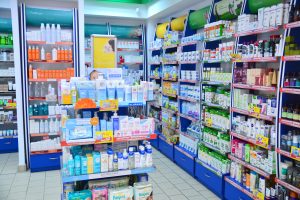Indonesia’s Food and Drug Monitoring Agency is considering launching criminal actions against two pharmaceutical firms responsible for tainted medicines that are believed responsible for the deaths of more than 140 children in 2022.
On October 20, the agency announced that 99 children had died this year from acute kidney injury (AKI), from what it suspected were contaminated cough syrups. The number of deaths has continued to rise, and now sits at 141.
Penny K. Lukito, the agency’s chief, said yesterday that it would work with police to investigate two unnamed firms with a view to eventual criminal proceedings over the composition of their products.
Penny told a news conference said that the authorities had identified concentrations of certain compounds in the firms’ cough medicines that are “highly excessive, highly toxic, and suspected to cause the kidney injury,” according to Reuters.
The agency, known by its Indonesian acronym BPOM, has previously identified these compounds as ethylene glycol and diethylene glycol, hazardous chemicals used in the production of paints, ink, and brake fluids.
The first cases of AKI were noted by authorities in January, but have spiked over the past three months, with 37 cases identified in August and 81 in September. Health Minister Budi Gunadi Sadikin said the actual number of illnesses could be five times higher than these estimates.
The tragic string of AKI deaths, most of them involving children under five, comes at an awkward time for the government of President Joko “Jokowi” Widodo, following the recent death of a similar number of people in a stampede at a soccer stadium on October 1. Amid a wave of nationwide concern, the Indonesian leader has ordered the Health Ministry to thoroughly investigate how the medicines became tainted.
“We must confirm beyond doubt. Clinical trials must be conducted really look into the cellular laboratory in the affected kidney organ so that we can determine what causes acute kidney failure, especially among children,” Jokowi, as the president is often known, said, according to the news magazine Tempo. The same day, the police established a special team to investigate the issue.
As Reuters reported, pediatric experts and the World Health Organization (WHO) are assisting the Indonesian government in its inquiries, given a spate of similar cases of poisoning in Gambia, which has seen at least 69 AKI deaths related to liquid medications. As the Health Minister noted, the parallel occurrence points to a deadly change in the composition of the precursors that go into the manufacture of the medicines by local firms.
This suggests that the problem may lie less with the Indonesia’s regulatory agencies, or even with the two identified firms, than with culprits further afield.

































